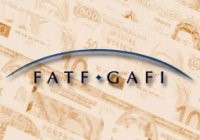-

28 June, 2011
Revision of the 40+9 FATF Recommendations, International standards in the sphere of AML/CFT, the problem of money laundering related to corruption, cooperation with FATF-style regional bodies and the review of the states having strategic deficiencies in their AML/CFT regimes were the key issues on the agenda of the meeting.
The FATF is moving towards the end of the process of the revision of 40+9 Recommendations. In the framework of the Plenary meeting a range of changes in beneficial ownership, legal persons, data security and privacy etc., which the FATF is planning to discuss in the format of the Consultations with the private sector in June or August 2011.
In the course of the FATF Plenary meeting the issues of cooperation with FATF-style regional bodies (FSRB) were considered. With the aim to strenghten international cooperation in the field of AML/CFT the FATF is planning to develop additional criteria for FSRBs in the framework of a special working group, which include the participation of the EAG as well.
Consideration of the reports on the progress of FATF member states, including India and China, which are EAG members, on the results of the mutual evaluations, became one of the most priority issue of the agenda. The report of India was considered taking into account the results of the FATF mission to this country in May 2011.
The FATF continues working to combat the laundering of proceeds from corruption activities within the wishes of the G20. At the Plenary meeting the typologies report on corruption which is supposed to be the starting point for combating money laundering in this sphere was considered.
The development of information-communication component of the FATF activities became one of the most priprity on the agenda. FATF has launched the work on implementation of the foremost technologies to raise awareness among and interested parties and general public in the FATF activities.
The FATF continued its work on reaviling jurisdictions having strategic deficiencies in national AML/CFT systems. In its public statement on the results of the meeting the FATF draws attention to the states, which are in the high risk ML/FT zone and present, therefore, a threat to the international finance system. The list of such countries has expanded and currently there are 10 countries in the list : Iran, Democratic People's Republic of Korea, Bolivia, Cuba, Ethiopia, Kenia, Myanmar, Sri-Lanka, Syria and Turkey.
In the second public document, representing the results of the monitoring on the review of compliance with international standards attention is drawn to a group of 22 states cooperating with the FATF to address strategic deficiencies in the national AML/CFT systems. Among such countries are Turkmenistan and Tajikistan, members of the EAG. In the public statement on the results of the 14th Plenary meeting, the EAG calls on these states to continue to strengthen national AML/CFT systems.
Information about the FATF
The Financial Action Task Force (FATF) is an inter-governmental body whose purpose is the development and promotion of policies, both at national and international levels, to combat money laundering and terrorist financing. The Task Force is therefore a "policy-making body" which works to generate the necessary political will to bring about national legislative and regulatory reforms in these areas. The FATF has been in existence since 1989 after the desision of the G7 Summit in Paris. The FATF includes 34 states and jurisdictions and two international organizations.

 Login to your account
Login to your account Eng
Eng Рус
Рус